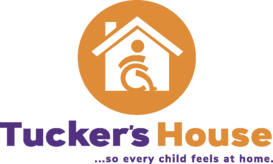Tucker's House
Programs
Budget
$393,600.00
Description
Tucker's House supports families of children with disabilities by assessing and retrofitting their homes to provide a safe and accessible environment that is conducive to greatest independence for the child. A licensed therapist and an architectural designer meet with families to develop an individualized plan which takes into consideration the current diagnosis/prognosis of the child and the current conditions of the home. Caregivers can lift a child up to 5,000 times a year, putting all involved at risk for major physical injury. Once the plan is developed a program manager oversees all aspects of the retrofit including budget, schedules, and volunteer involvement. Projects can include solid surface flooring, ramps, roll-in showers, widened doorways, and lifts. There is a great need for affordable retrofit services for these underserved families, and Tucker's House currently maintains a waiting list.
Program Areas Served
None
$393,600.00
Description
Tucker's House supports families of children with disabilities by assessing and retrofitting their homes to provide a safe and accessible environment that is conducive to greatest independence for the child. A licensed therapist and an architectural designer meet with families to develop an individualized plan which takes into consideration the current diagnosis/prognosis of the child and the current conditions of the home. Caregivers can lift a child up to 5,000 times a year, putting all involved at risk for major physical injury. Once the plan is developed a program manager oversees all aspects of the retrofit including budget, schedules, and volunteer involvement. Projects can include solid surface flooring, ramps, roll-in showers, widened doorways, and lifts. There is a great need for affordable retrofit services for these underserved families, and Tucker's House currently maintains a waiting list.
Program Areas Served
None
CEO/Executive Director/Board Comments
| The challenges and opportunities facing our organization are the large number of children and families who need our help in completing necessary home modifications. Often, the family must wait six months or more for us to complete their projects because of our backlog. Additional funding for staff would make it possible for us to complete additional projects in a shorter period of time, thus serving more families. |

